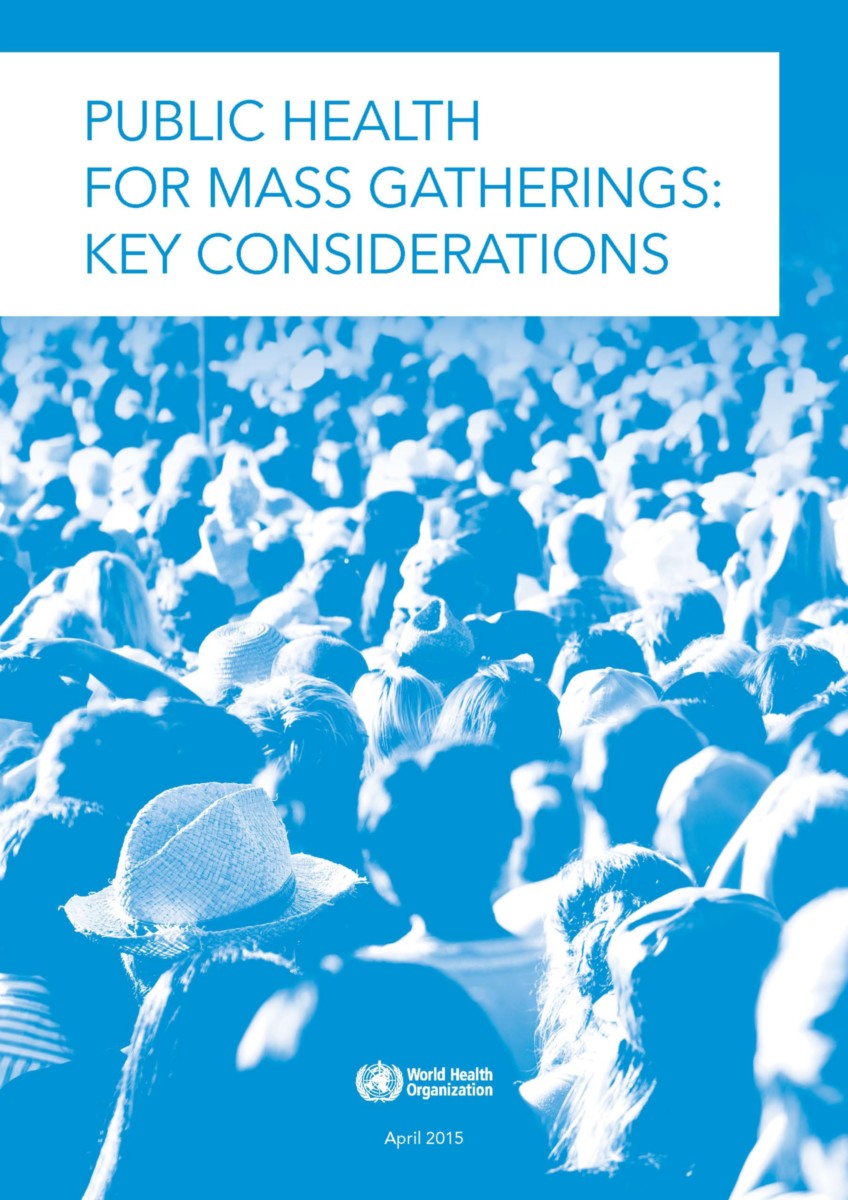Public Health for Mass Gatherings
Key Considerations
- Publisher
World Health Organization - Published
7th December 2015 - ISBN 9789241564939
- Language English
- Pages 92 pp.
- Size 6.5" x 8.875"
This document provides an update to the "Communicable Disease Alert and Response for Mass Gatherings: Key Considerations", July 2008. This new version builds on the expertise gained across the global mass gathering community since this was published. It has also been expanded to cover more than communicable diseases and includes new areas such as legacy, environmental health and different contexts such as unplanned mass gatherings (MGs).
Legacy has been included here as a key element of the planning for MGs. Leaving a viable public health legacy and sustainable improvements in health infrastructure and capacity should be a key aim of those involved with preparing for any MG. Legacy can include improvements in the health systems in the host country, improvements in health behaviors, and ability to deliver future MGs. It is important that the legacy planning is seen as equal to other areas of planning and both political will and the associated funding should be used to achieve this.
The document was conceived as a resource to support all those responsible for the health needs of individuals attending a MG, and to help them plan their actions. The principles and practices outlined in the document may also provide valuable initial guidance to those involved in planning other aspects of the management of MGs.
The Global Capacity Alert and Response Department (GCAR) of the World Health Organization (WHO) and the network of the WHO Collaborating Centres for Mass Gatherings increasingly provide expertise, support and resources to those planning MGs. This document has been produced to help address these requests, and to provide support to all those involved in the health aspects of planning for MGs, not just those directly employed in the health services.
This document draws on experiences from past MGs that suggest certain common critical factors and preconditions for success, as well as strategic, organizational, and tactical lessons learned that can be applied to future gatherings.
World Health Organization
World Health Organization is a Specialized Agency of the United Nations, charged to act as the world's directing and coordinating authority on questions of human health. It is responsible for providing leadership on global health matters, shaping the health research agenda, setting norms and standards, articulating evidence-based policy options, providing technical support to countries, and monitoring and assessing health trends.


